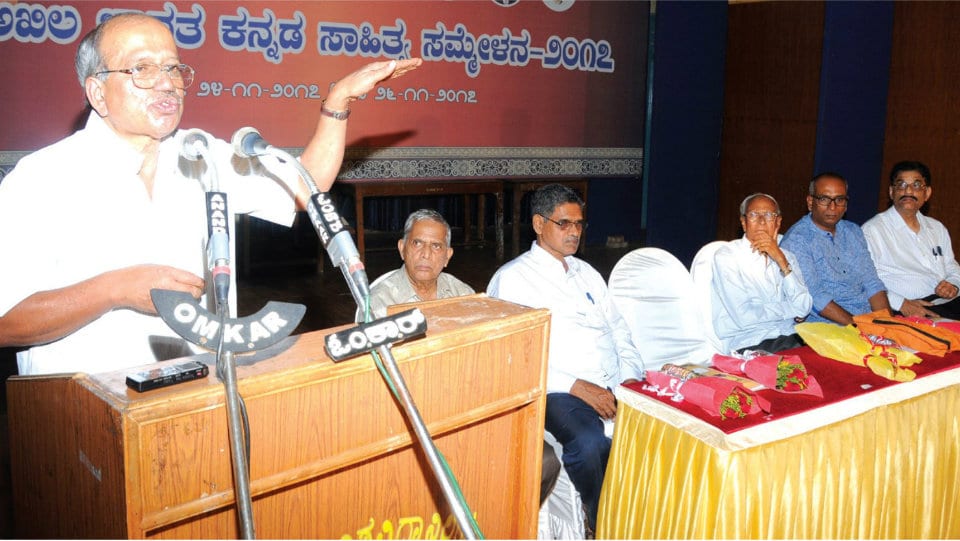Mysuru: Several speakers on the inaugural day of the mega literary festival recalled the contributions of Wadiyars in the formation of Karnataka and development of Kannada language.
Retired Kannada Professor and Scholar Dr. N.S. Taranath who spoke on the contributions of Wadiyars, said that the Wadiyars patronised fine arts and literature and helped in the preservation of local traditions. He cited the literary works of Mummadi Krishnaraja Wadiyar and his treatise on iconography — Sritattvanidhi — and 50 other works.
“Wadiyars were instrumental in educational and administrative reforms that led to the establishment of schools that produced a new generation of educated classes in whom the idea of political freedom was ignited. More than 800 Primary Schools were established across the Mysore kingdom, besides 50 English-language schools and 30 Sanskrit institutions,” Taranath said.
Describing Nalwadi Krishnaraja Wadiyar as the greatest of the kings, Taranath said that Nalwadi created the modern Mysore State with stress on education and industrialisation which saw the establishment of 393 industries providing jobs for nearly 55,000 people.
The measures initiated by the Wadiyars, including the formation of a representative assembly, introduction of reservation and enactment of free education, were the forerunners of future political institutions in democratic India, Taranath added.
The contributions of Hyder Ali and Tipu Sultan were also recalled. Historian Dr. Prithvi Datta Chandra Shobhi said that Mysore Kingdom was one of the many regional powers that existed after the decline of the Mughals and was obscure to the world outside. The British Empire faced twin threats – one, American Revolution and two the Mysore Kingdom that was ruled by Hyder and Tipu.
“Hyder and Tipu could threaten the British Empire as they effectively harnessed resources and at the same time, modernised military.
The present debate on the atrocities committed by Hyder and Tipu cannot be dismissed, their actions should be seen as fallout of political decisions rather than religious ones,” Shobhi said.








Recent Comments